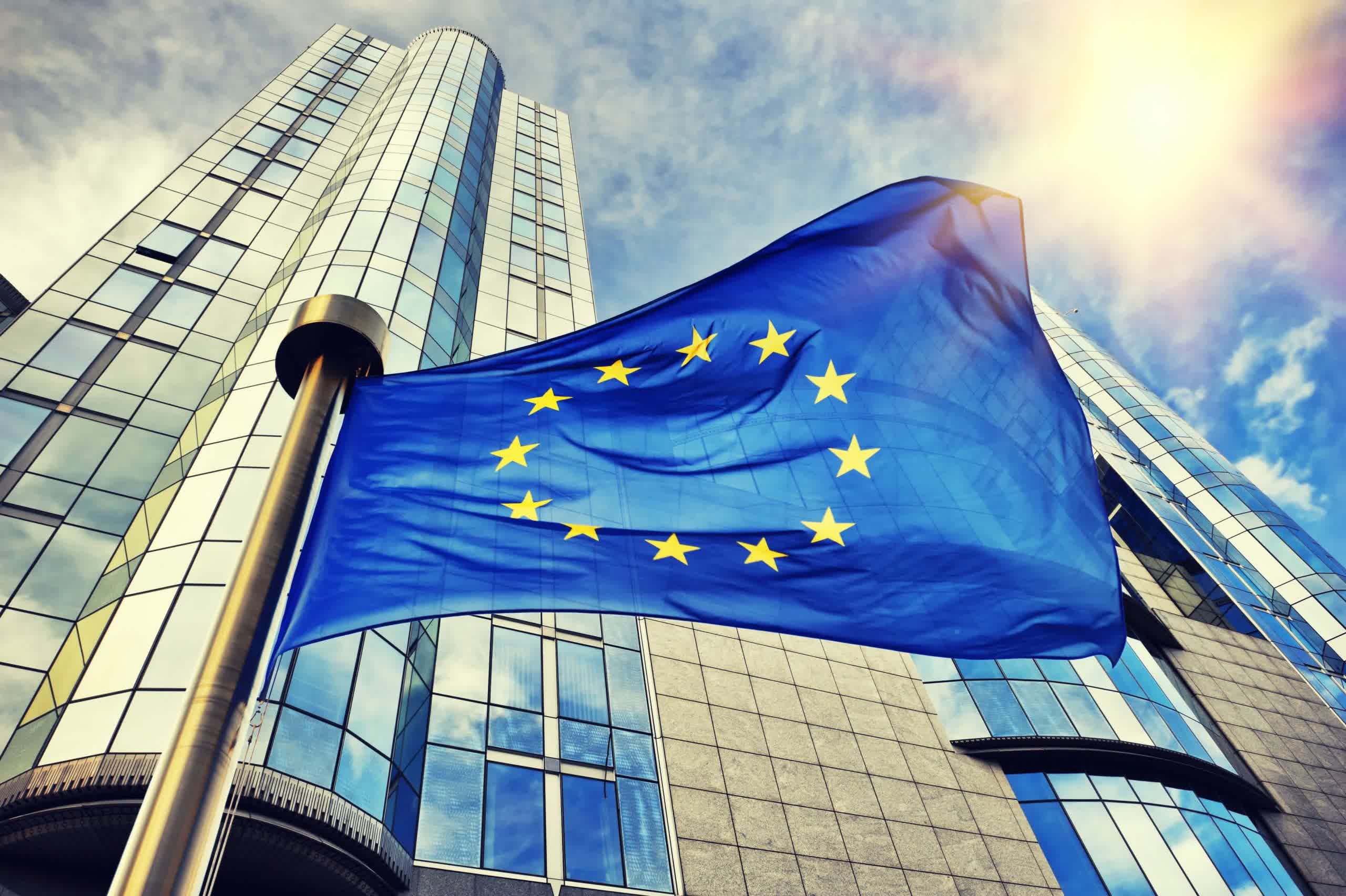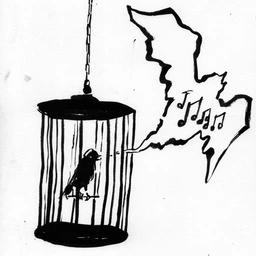- cross-posted to:
- [email protected]
- cross-posted to:
- [email protected]
It would be nice if the options weren’t like “Enable all cookies” and “navigate 4 menus that try to convince you to enable all cookies.”
It would be better if you could set your preference on the browser once and never have to mess with it again unless you want to have exceptions for specific sites
In theory this is done. There is a Do Not Track (DNT) header that is browser defined. Does anyone use it? Do they fuck.
I use it and the browser kindly explained to me that the feature is mostly useless because sites don’t give a shit about it.
Sorry, I’ll revise to what I intended (since I also use it). “Does anyone pay attention to it? Do they fuck.”
AFAIK the regulation already says that the “only necessary” should be available with one click. I think the issue is that it’s difficult to go after all the small pages that are breaking the law. The big ones like YT of Google already have the ‘disable all’ button on top, I’m guessing because EU complained.
It doesn’t say that it should be available with one click.
It says that accepting should be just as easy as declining. Which also includes things like not being allowed to have a “greyed out” button to reject while the accept button is big and sparkly.
Yes, I think you’re right. And everything should be disabled by default, right? So the pages that make you do ‘configure -> disable all -> save’ definitely don’t follow the rules.
It depends on the country. GDPR is not a law. It’s a framework that countries use to implement national laws. GDPR doesn’t say anything about one-click rejection, but some countries added it to their national law.
I want an “only necessary cookies except one cookie to remember I clicked this option” button available with one click.
Just make it illegal to sell user data to “data partners”, and use cross site tracking.
Nobody actually “consents” to this shit. They just don’t read.
I really wish we had a simulated world sandbox to try these ideas out in. I suspect this might lead to the end of most free websites.
TV never targeted commercials directly at “Dave Smith, likes fishing and interracial porn, lives in Chesterfield, searched for new cameras recently”, but they still operated.
Sure, but also beside the point? I’m talking about the effects of changing an underlying mechanism of a live system, not of comparing two different systems that developed over time.
Here are my guesses: sites that have enough unique visitor count and data to work directly with advertisers may not fall. Small sites that rely on Adsense networks for revenue would no longer have revenue. A small (though non-zero) number of people/groups would continue on and seek alternative funding. Without ad networks, many tech companies fall.
I’m not saying that I’m against any of this, either. In my view, there’s a large chance that nothing of real value (to a society) would be lost. Maybe we can bring web rings back.
Ad networks could still work, they just wouldn’t have the targeting data to work with or the usage data they can sell as an entirely unrelated business model. They were profitable before the current big data push, there’s no reason they couldn’t continue to be profitable without that big data again
Do you think our economy has changed since big data targeted advertising? Your example is the same as Blackmists’, essentially. We’re 30 years down a path and flipping a switch like that would have widespread repercussions. Again, I’m not saying the repercussions shouldn’t happen.
Yes it has changed, for the worse
There’s no reason they can’t just use the page you’re on and a very rough “location from IP address” (e.g. just the country, and sometimes not even that), to give the advertisers something to aim at. If you’re on a camera website, you’d see camera shops in the UK, etc, rather than a load of weird buttplug shaped things from Temu.
How would the advertisers get location IP if they can’t have the data?
Edit: whoops, got trigger happy. Anyway, I’m totally behind taking back control from advertisers. They have an outsized influence in society. I also think there are unforeseen consequences of your blanket statement suggestion that haven’t been considered, hence wishing for a simulation. Again, if advertising is less targeted, cost of customer acquisition goes up and most business models break.
Your browser would technically have to request the advert anyway. So they’d have your IP regardless if they served you an ad. They just wouldn’t be allowed to push it and your browser fingerprint to 1000+ “data partners”.
A better addition might be to have a dedicated advert tag in HTML, that disables any JS within that block, so the only thing they can do is give you a chunk of HTML/CSS/images with no ability to fingerprint.
Did you entirely miss Nielsen and the data they gave to advertisers?
Could we go back to that? Paying people to install spyware box behind their router?
Which free websites? The modern web is just:
- (Quasi-)monopolistic platforms (meta, google, xitter, etc.)
- Newspapers
- SEO filler
- Webshops
- Free sites already operating out of the goodwill of some random admin and making single-digit ad revenue anyway <– you are here
- Porn aggregators
- SEO filler
- SEO filler
- Wikipedia
- End of list
The only ones whose business model would truly be threatened and whose loss would be problematic are newspapers.
OTOH newspapers accidentally cornering themselves in a “freemium” business model has fucked journalism over so bad I’m not sure how it could even be worse.Free websites like the ones we are on barely exist anymore anyway, because how the fuck do you “compete” in the “free marketplace of search indexing” when some russian troll is burying you to page 5 of google’s search results and you can’t reach anyone via facebook or twitter without paying thousands?
“Free sites already operating out of the goodwill of some random admin” are where the good shit is.
Craigslist struck the first blow against newspapers by taking away classified ad revenue. The death blow came when Silicon Valley taught people that “information wants to be free,” which meant that no one wanted to pay for local news anymore. That led most local newspapers to collapse, while the few that managed to survive --apart from a handful of “legacy” papers-- mostly did so at the cost of turning into click-bait sites or outrage machines.
We have to bring back the idea that people should be happy to pay for local news.
They can just run ads without all the tracking bullshit and data collection like they do on every other medium with free ad supported content like radio and television. Somehow I can watch TV and listen to the radio for free and they manage to stay running without monitoring my every move.
Might be less profitable for them but so be it. Just because tracking helps their business doesn’t mean it is justified.
I’m not a fan of the cookie consent popups, but I do appreciate the EU actually trying to do something to protect people’s privacy. Seemingly the only major entity to do so right now.
deleted by creator
A better solution would be to force sites to care about the Do Not Track browser setting that currently does nothing as told by the browsers themselves.
Exactly this. The goal of requiring explicit cookie consent/refusal is admirable, but the implementation of cookie banners is both useless and terrible. We already have a way to communicate to websites whether we’re alright with cookies or not, they’re called HTTP headers.
The irony of DNT becoming another data point to fingerprint you with sucks.
Just add 2 things:
- Cookie settings are possible to set in the browser for all pages.
- There’s a reject all button on every cookie banner.
- There’s a reject all button on every cookie banner.
Most importantly, those banners should be streamiled to look the same at the very least. No highlighing “ACCEPT ALL” while graying out “reject all” nonsense. No swapping the buttons left and right, top to bottom trickery. I’d prefer if the browser takes care of it all, though. I’m already using a plugin for that, though it comes with draw backs.
Which plugin do you use?
I am using „I still don‘t care about cookies“ for Firefox. It basically auto-selects the least required cookies possible. Though some sites don‘t offer opt-out so it will automatically accept those cookies. Not perfect, but I really can‘t be bothered to do a cookie captcha every time I open a private tab for example.
Right, this!
Tired of all the dark patterns.
No, just ban the collection of user data and selling to 3rd parties. Enormous fines for anyone still doing it. Destroy this entire industry please.
The EU is primarily pro-business, but that also means being against anti-competitive and underhanded business practices
The browser thing sounds like a good solution (although there must be a reason why DNT headers weren’t made legally binding, potentially as they wanted to allow people to pick and choose what cookies they allow based on what they thought was “too far” or something but that’s conjecture), however disallowing all user data will likely lead to companies not being able to advertise to people who are interested in their products, something which the EU will see as a negative and would also cause an uptick in scams and misinformation as you see in low quality advertising space at the moment
This comment got to me really late, probably to Lemmy’s distributed nature.
But I still want to add: of course business will make more money if you allow more practices, but selling personal data just has too many negative consequences.
Also low quality advertising? You mean like billboards and in the newspaper? You mean regular advertising?
I mean “[local town] grandma discovers 10 foods you never knew you should avoid” or even downright scams when I say low quality advertising
Also “negative consequences” is a bit overdramatic and I’d love you to elaborate… Really it’s down to the person’s own opinion, eg you don’t like it so you’ll reject that sort of thing, meanwhile I don’t mind it especially as a way of paying for decent quality media so I’ll allow it on some sites but not others
- No there most definitely is not. Most banners have a big yes button, and you need to scroll to a settings button and then do five more things to not get cookies.
He said that should be added
So true. And then you have Schibsted, Norways biggest media conglomerate; the only way to reject cookies is that you have to log in in order to reject it! According to the cookie law (no idea what it’s called), it’s illegal. It’s been reported to the EU and Norwegian government numerous times, but nothing happens. Fuck Schibsted!!
In my experience a lot of italian (particularly “news”) websites basically say “accept cookies or sign up for our paid subscription”
Incognito and accept all
I meant it should be added as a default thing you have in every one of those things.
But even if you reject all, you still allow them to track you through the legitimate interest cookies
That doesn’t sound like a legitimate interest and should be fined or something.
well, not on every cookie banner
The reject all is already a thing. (Well is not all all, but reject all except necessary but those doesn’t matter much, they are not tracking).
That said usually is not called this way as obvious, sometimes is just “reject” without the all, “accept only necessary”, “decline”, etc or you have to close the banner etc or they use some other confusing pattern.
What’s annoying is the “Reject” button hidden on another page. That should be illegal.
And it actually is… Quote from the GDPR:
It shall be as easy to withdraw as to give consent.
The problem isn’t the law. It’s that it isn’t enforced.
It is enforced, but there are so many websites with so little time.
So it takes a while. It used to be WAY worse.
Plus the ‘legitimate interests’ of 3rd parties
Yeah, definition of “legitimate interest” is definitely being stretched well beyond it’s breaking point.
Pretty sure it is
It should be just a browser option.
You set cookies on or off, ans the browser sends the option in the headers. Websites just need to take the option from the header instead of a banner.
It already exists and is called “do not track”.
Unfortunately by sending DNT you are merely suggesting to the server that you wish to not be tracked. There’s no requirement for the server to actually care about you at all.
Now, if DNT were actually legally binding though - that would indeed be very cool.
Yes and this is what they should have legislated. I don’t know if lobbyists or stupidity got in the way, or both. But the fact that this news comes now so close to Google Chrome abolishing cookies for its new “privacy” feature is suspicious timing.
That has been tried with the DoNotTrack header. Turned out servers didn’t oblige by it.
That’s because it was entirely voluntary. It should be integrated in the browser by law, and the choice should be binding
Yeah, but if the EU required sites to pay attention to them…
There are addons (for firefox at least) where the cookie banner will come up but your browser auotmatically refuses all cookies.
Yes, but it often doesn’t work and even when it does the site is unusable while it works, which for some particularly awful banners is several minutes. The situation is worse on mobile where most people have a browser that you can’t install add-ons to (and I’m not sure if that one works in firefox mobile anyway)
This is the one I use. It’s FOSS and developed at a university.
Am I mistaken in believing it is an already a browser option?
Off the top of my head Qutebrowser and Falkon both support not-saving 3rd party cookies.
Your browser can not save third party cookies, but it might break some sites. Some advertising situations allow the use of first-party cookies, and blocking first-party cookies will break most sites.
In either case you will still have to fill out the consent form, and if the consent is stored in the kind of storage you block, then you will have to fill it out every single time you visit.
The DuckDuckGo browser has this baked in as ‘Cookie Pop-up Protection’. It doesn’t quite get rid of them all, and doesn’t let you set a default for what you want (it’ll basically pick the most privacy-forward option) but I’ve found it works pretty well.
if website has a choice, then they will often choose an option that benefits them the most.
Good news is third party is being phased out now https://developer.mozilla.org/en-US/blog/goodbye-third-party-cookies/
They should do something about “consent platforms” using various DNS tricks and thousands of domain names to bypass/evade user blocks.
I wasn’t so bothered about some non-invasive ads a few years ago, but I absolutely despise any kind of ad now TBH, and it’s mainly down to how persistent some of these platforms are with their evasion tactics
Also pretty ironic for their popups to talk about “respecting” my privacy when these platforms literally do the opposite of that to show their popup in the first place. I will not support any of them, in any way, on my network.
As soon as I see a new one appear when browsing, I chuck it into dnsdumpster so it can get recorded with the rest of them, and then block the new list from dnsdumpster (grid icon) on my network.
The EU law explicitly says no consent by default and users have to opt in. All of these cookie banners are breaking the law, the law doesn’t need to change it just needs enforcing and these banners will disappear. We already have a do not track header and that could be complied with but it’s enforcement that is the problem.
How do they break the law? The opt-in forces them to ask you first and that’s what the annoying banners do. Sites that don’t care about tracking also don’t show these pop-ups.
The default should always be “no”. The user has to opt in.
The law specifically says not to do the super complex dark pattern deny every 3rd part cookie manually by hand - crap.
The problem is that it’s not enforced
The user often needs to click through several steps to say no
And that’s exactly against both the spirit and the letter of the law. They need to enforce it.
Now don’t make it worse!
Narrator: They made it worse
‘they always can, they always will’
I’d be happy to keep the ones that say:
“we notice you are in europe and we can’t use our cookies to track you so you can’t come to our website”
It’s good to know sites with policies like that to ensure I never visit them.
“It is literally impossible for us not to spy on you or sell your data. Sorry not sorry bye.”
Typically, those already have geo filters because they can’t be bothered to implement EU requirements.
Unless you’re outside of the EU, of course, in which case you’ll probably be tracked no matter what.
One example I know if is my hometown newspaper, dentonrc.com; I have a friend who moved to Europe and was annoyed that they geo-blocked him, but I can’t really blame them. How many people are really gonna visit the site for a small American newspaper from the EU? From a business perspective it makes no sense for them to pay a developer to do more than the bare minimum.
Geoblocking in such cases would not be sufficient. For one thing your geo-IP database will never be perfectly accurate, even without considering that “data subjects who are in the Union” can connect to your site via proxies or VPNs with non-EU IP addresses. For another you still need to respond to GDPR requests e.g. to remove data collected on a data subject currently residing in the EU, even if the data was collected while they were outside the EU, and you can’t do that if you’re blocking their access to the site. For a newspaper in particular the same would apply to any EU data subject they happened to report on, whether they had previously visited the site or not.
What exactly is the EU gonna do about a foreign site that does no business in the EU? They don’t rule the world.
Sure, they don’t rule the world. They only have the power to ban you (either the company per se or its individual owners, officers, and/or employees) from ever again doing any business in the EU. Which naturally includes business with any individuals or companies either based in the EU (as a seller or a buyer) or wanting to do business in the EU. Or from traveling to the EU, whether for business or personal reasons. Little things like that. Nothing too inconvenient. (/s)
They haven’t taken things quite that far—yet. But they could. It’s dangerous to assume that you can ignore them without consequences just because your company doesn’t currently depend on revenue from EU customers. The world is more interconnected than that, and the consequences may not be limited to your company.
So is a local newspaper supposed to be afraid of not complying aggressively enough with foreign laws from the whole world, or just the EU? The way I see it they’re already doing more than is reasonably required by making a good faith effort to prevent people in the EU from accessing their site. Holding them responsible for people who deliberately bypass the blocking seems downright imperialist to me.
I know, I certainly don’t blame the little sites.
What if this wasn’t a website issue but a browser one. Browsers invented cookies so browsers should be the ones to implement the banner feature. All Developers would then be forced to implement fallbacks to their cookies since the user could turn cookies off. If it was browser based fix then it would be a consistent UI and developers wouldn’t be able to do shady shit(at least with cookie consent is concerned)
Damn, this is a really great solution. Then I could decide once if I wanted the cookies and the browser would decline/accept(lol) all from that point.
Ahh a good idea. Basically guarantees it will never get done.
Technically you can do this already with some firefox settings, or with extensions. Set your preference and forget.
Eh, I think cookies should just be opt-in unless they’re absolutely necessary for the site to function.
Then all cookies will be considered necessary. It’s very hard to legislate the edge case.
It’s already the case that necessary cookies don’t need permission, but websites do not abuse this to not show the prompt. This is because the legislation has teeth.
This is exactly the spirit of the cookie law
Companies already bundle their invasive data collection with necessary features so if you block it than the website just won’t work, this would incentivise that behavior if necessary cookies are automatically approved.
Ah yes, the good ol Internet
ExploderExplorer tactic
This is what the regulation was all about. The law did not said anything about cookies, they are the core web technology, just that you must be asked for personal data processing.
Not only are they annoying, they go half way to legitimising the theft of user data.
Exactly. Identify what uses are legitimate and what uses aren’t, and legislate directly. None of this consumer consent crap because it’s meaningless to consumers. No consumer benefits from their browsing habits being under surveillance.
Was done before too, but now the websites simply need a banner for using categories of cookies which require it (tracking, marketing, …)
And we already have GDPR at least limiting activities in a broad sense. (of course lots of leeway, but still much better than before)
You cannot do more with a cookie banner you couldnt already do before.What do you mean? GDPR allowed for the “unless the visitor agrees” stuff so that’s why we see cookie banners everywhere.
I would say it should either be allowed or not, depending on the use case. A navigation app should be able to track your location for the service they provide but not for ads or selling to other companies. Your calculator app has no business even asking. Profile based advertising (rather than content based) should be banned wholesale. That sort of stuff
You do realize you only see the cookie banners because the companies are now forced to show you one? It’s not like they started collecting shit only after the GDPR nor is it entirely illegal and unethical to sell user data. The point of the GDPR was to make users aware of which websites are selling which data and give them an avenue (be that declining cookies or leaving the site) to prevent that. Corporations then designed their way around the wording of the GDPR to make declining cookies as difficult as possible which is why we’re seeing this push for a revision now. The goal still isn’t to make user data based financing impossible, it still is to prevent users from being pushed or bullied into selling their user data against their will.
That should be the goal. This cannot be left to individual consumer choice, is what I’m saying. The annoying cookie banners should be a wake-up call for regulators that the “let the consumers decide” experiment has failed.
The cookie banner is only required to store data on the users device. the tracking without is still possible and potentially allowed via legitimate interest.
If they want more they already ask for more outside the cookie banners when they require or want to have your consent (e.g. consent to load content from sources which will transfer your data outside their control e.g. youtube-embedings)
The limitations of whats allowed is already established in the GDPR, so anything you cannot find legitimate reasons for is already not allowed e.g. simply selling your data to other companies (as long as they include PII)
And as coupling is not allowed either its not allowed to couple consent with a cookie banner (which should only be used to ask for permission to store data for purposes which arent required for the usage).What we do need is to have a technical implementation of the browser to tell the website via standardized methods what is allowed or not.
At least the regulation show us how shady internet is. That banner only shows up if the website is going to use cookies to use your data as a way to make profit. The fact that every website is doing that was eye opening for a lot of people.
Lol I’m a web developer who has put hundreds of those banners on clients’ sites. Not as part of some nefarious data-selling scheme, but rather as a shallow tickbox exercise in order to comply with laws about technology they don’t understand.
In this case, assuming ignorance over malice is the way to go.
In this case i assume you’re an ingnorant developer who didn’t thought of better options to comply with the law
In any case you are welcome to make incorrect assumptions, especially if my statement hurt your feelings.




















